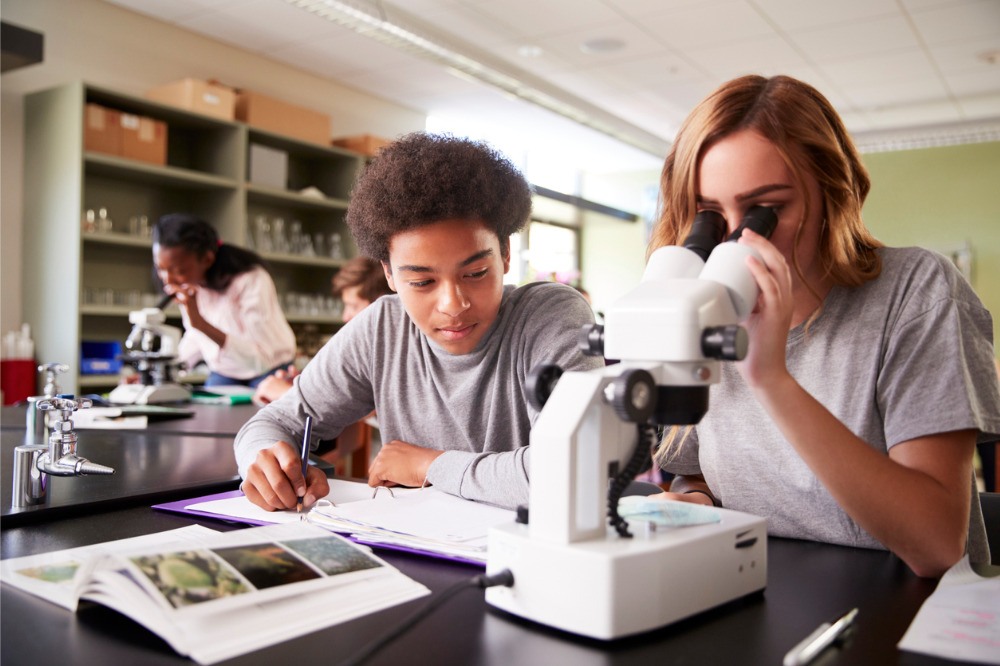
In a widely circulated YouTube posting titled: ‘Did you know’, it was stated that “We are currently preparing students for jobs and technologies that don’t yet exist...in order to solve problems that we don’t even know are problems yet”.
The message contained in that quote is not lost on schools, which are faced with the challenge of preparing students for an uncertain future.
Educators frequently hear about the need to “equip students with 21st Century skills”, and yet there is no international consensus on what exactly is meant by 21st century skills and how these are taught around the world.
For most schools, these skills are recognised as the use of digital communication, problem solving without immediate teacher support and technology, and over the past year, students have had no choice but to direct their own studies to a greater extent.
This has included solving problems without immediate support from teachers, to motivate themselves, to create new ways to learn, and to be accountable for their learning.
The International Association for the Evaluation of Educational Achievement has developed a 21st Century Skills Mapping Study called 21CS MAP, which will explore, describe and analyse the intended curricular opportunities for students to meet 21CS learning goals, such as problem solving, decision making, communication or critical thinking.
“Everyone wants to ensure young people are equipped to think critically and creatively, to solve problems in an increasingly changing and globalized world,” IEA Executive Director, Dr Dirk Hastedt, said.
“For many years, 21st century skills have been discussed without a precise definition of what these skills are and how they should be taught”.
Dr Hastedt said that as 21st century skills are needed more and more, it is crucial they are better understood and 21CS MAP will help countries meet the challenge of designing education systems to equip young people for their future.
Study director, Dr Esther Care, Professorial Fellow at the University of Melbourne, said the IEA’s previous research has provided “convincing evidence” of a global shift towards the incorporation of 21st century skills into educational aspirations.
However, she said the information so far has not shown the actual impact on curriculum change.
“By working with IEA, using their approach of having participating countries really embedded in designing the study framework and survey, we will produce the first multiple country dataset to give a common definition of 21st century skills, with the connections between them and core subjects, as well as demonstrating how these are represented within the subjects”.
Teaching students ‘how to think’ is key
According to John Munro, a Professor at the Australian Catholic University’s School of Education, student outcomes will not start to change until the quality of teaching changes.
“Before students can apply their knowledge, they need to have it. Teachers need to teach knowledge explicitly,” Munro told The Educator.
“If, at the end of every teaching session, students were encouraged to say what they have learnt, suggest how they might use it in the future and take pride in what they knew now, the gap would start to narrow”.
Professor Munro said it is also important that schools teach students explicitly how to think about what they know; to infer, analyse, compare, evaluate and to generate new ideas.
“We need to teach them explicitly how to manage and use what they know and how to be teach themselves,” he said, adding that schools must also teach students how to be “experts of their knowledge”.
“By going back to topics they learnt earlier and revising those topics, students can make new links, practice applying them and speed up recalling them”.
Professor Munro said students should also be encouraged to see their learning successes, celebrate their new knowledge, take pride in what they are learning and want to use it.
“An explicit focus on knowing and learning is every classroom is critical. High quality teaching leads to high quality knowing and learning. Australian students can begin to learn to value knowledge more”.


